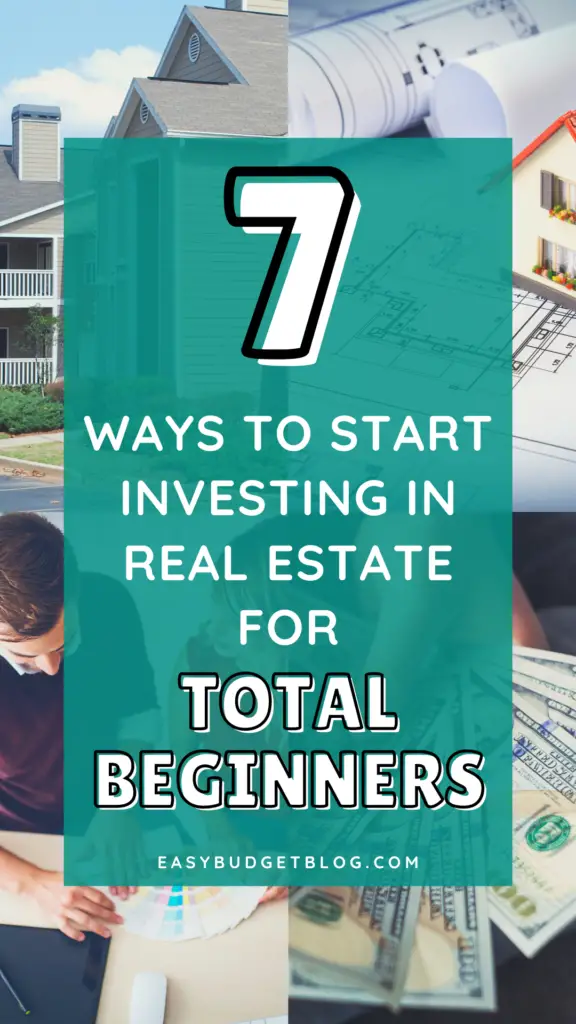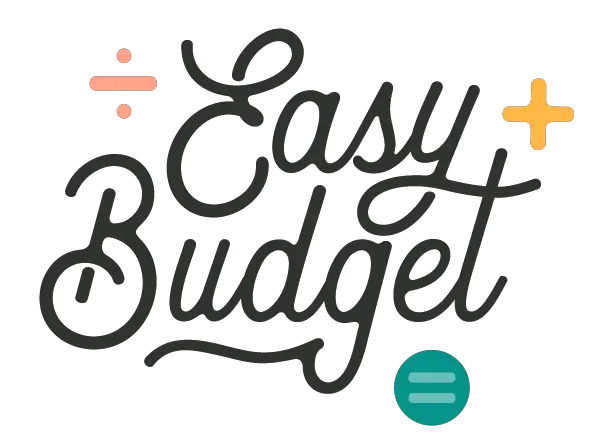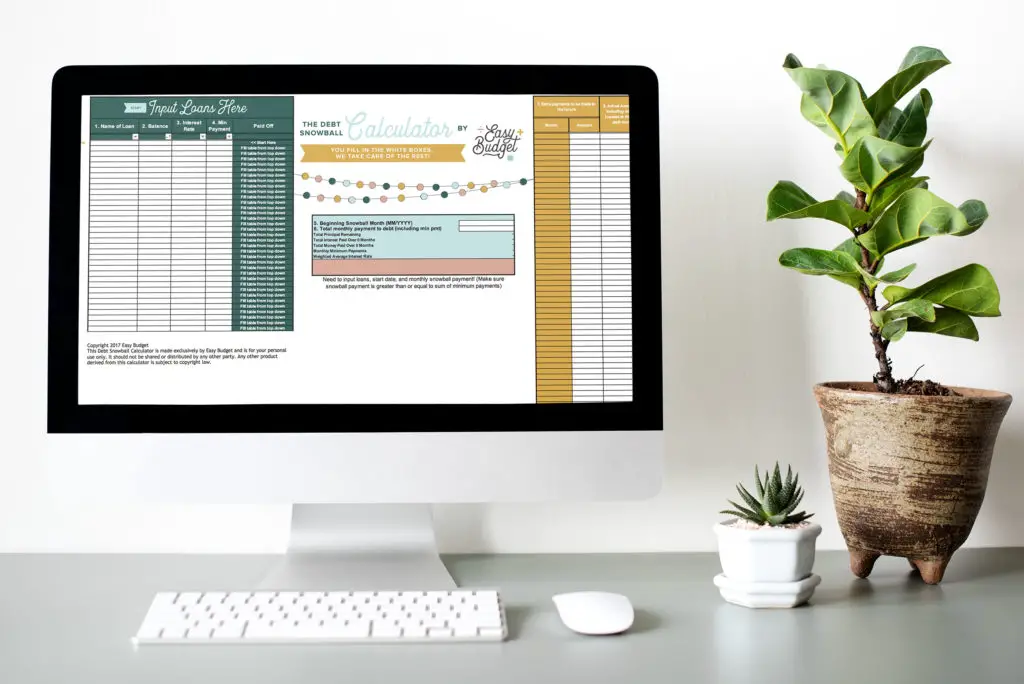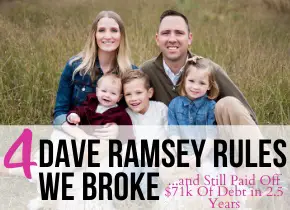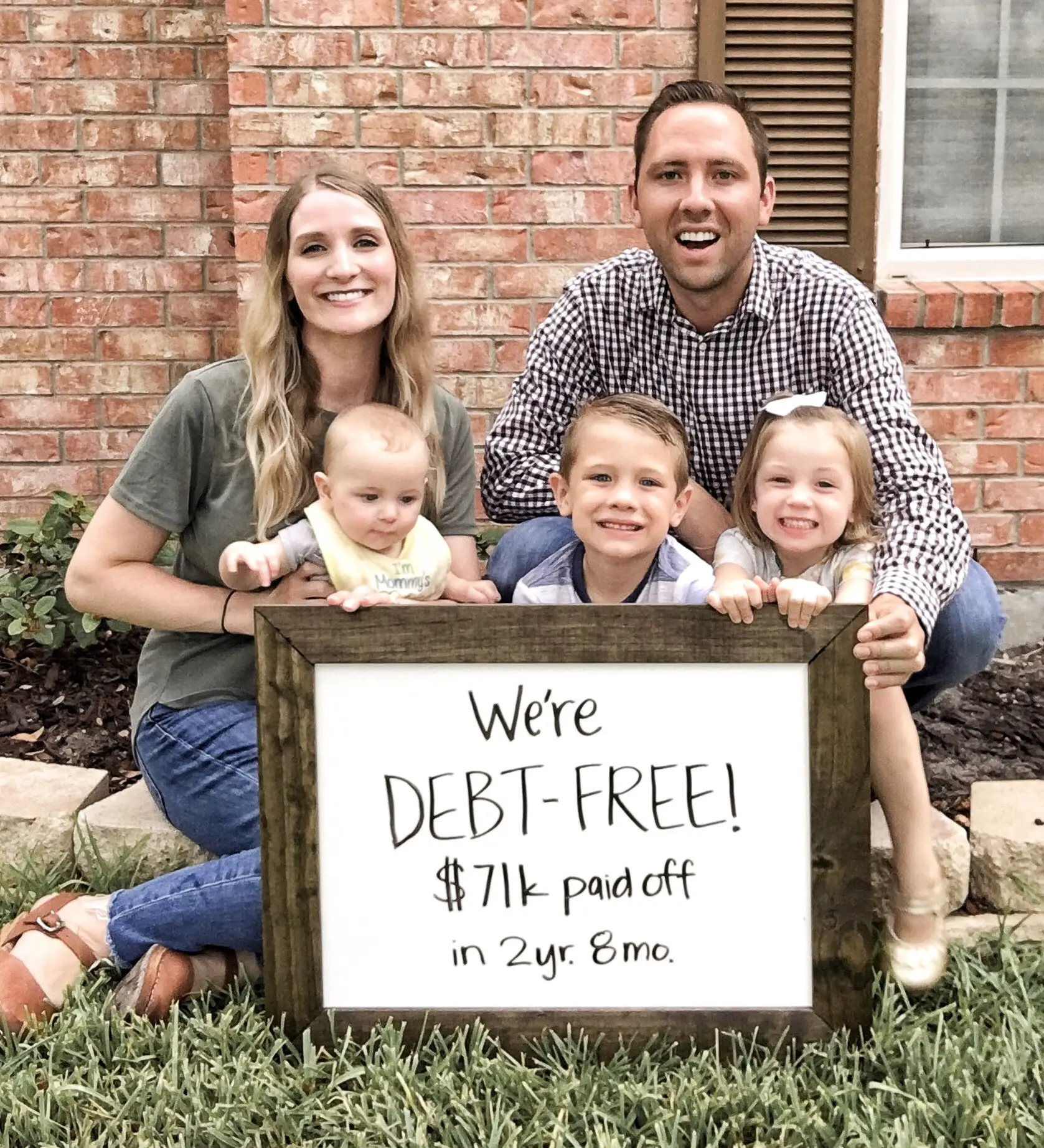This post may contain affiliate links where I earn a commission, at no additional cost to you, if you decide to make a purchase after clicking on a link. Please see our Disclosure Policy for full details. Thank you for your support!
Investing in real estate is one of the best investments you can make. You get to own a piece of tangible property, provide and improve housing for communities, and make money in multiple different ways. However, many people are iffy on whether real estate investments are for them. The nightmare stories of terrible tenants may have you hesitating. The good news is that there are many different ways you can invest in real estate ranging from super hands-on landlording, to completely passive, zero-work investing. Today, I’ll break down the top 7 ways to start investing in real estate for total beginners!
Real estate is a very common wealth builder. We increased our net worth about 18 times in the space of 2-3 years primarily through real estate investing. Did you know that over 90% of millionaires own real estate?
Although my personal opinion is that most people would benefit from real estate investments, this type of investing should be approached with care. The potential gains of owning real estate are tremendous, but they don’t come without risk and often some effort.
In this article I will tell you the 7 best ways to get started in real estate investing for beginners, share why we love real estate investing for growing wealth, give 6 tips to get started on your first property and share our personal story.
So, are you interested in learning more about different ways to build wealth through real estate?
7 Ways to Invest in Real Estate for Total Beginners
This article is for educational purposes only. Not investing advice. Invest at your own risk. When you invest in real estate, your money is at risk and you are willingly taking on that risk.
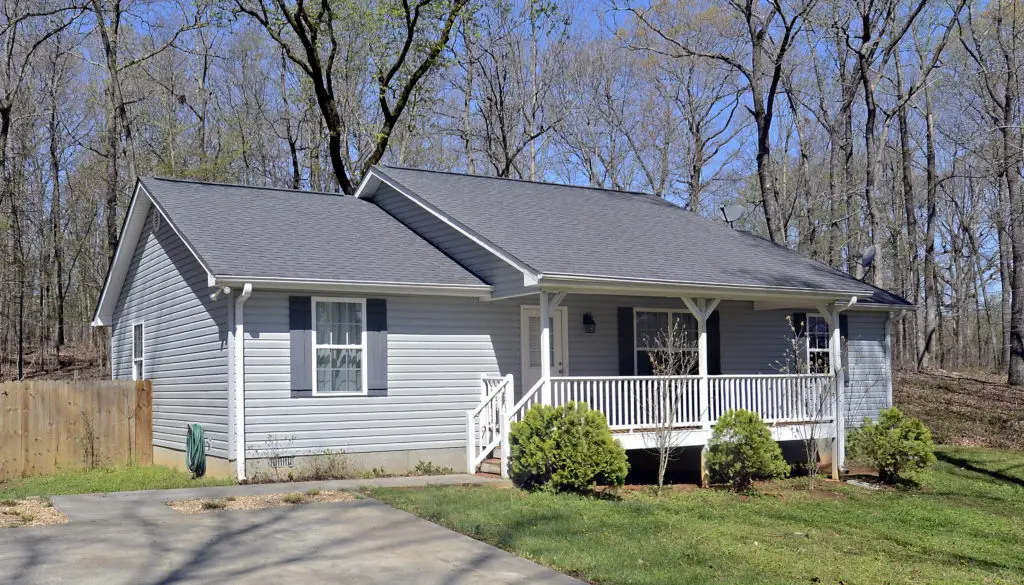
1. Buy a single family house, duplex, triplex, or 4-plex and rent it out
One of the most basic ways to get started as a total beginner in real estate investing is to simply purchase a single family house, duplex, triplex, or 4-plex and rent it out to tenants.
You can purchase this property in cash or with a mortgage. Many real estate investors purchase rental properties with a mortgage as opposed to paying in cash because you get to use someone else’s money (the bank’s) to buy the home and reap all the benefits of the property appreciating and the renters paying down the mortgage for you over time.
You’ll want to make sure that after the cost of the mortgage, regular repairs, maintenance, insurance, vacancies, management and other costs that the property will still provide cash flow.
Cash flow: The gross income from the property (e.g. rent collection!) minus all expenses related to the property, minus any debt service related to the property (e.g. paying the mortgage). This number is usually expressed in terms of monthly cash flow or annual cash flow.
You can also make money as the property appreciates in value over time, as long as housing demand is increasing.
A common rule of thumb for if a single family house or small multi-family property will be profitable this is the 1% rule (sometimes more like 1.5% or 2% rule). This rule helps investors figure out if it’s worthwhile to pursue a house or small multi-family property. The general idea is if the rent you can collect each month amounts to 1% of the purchase price + rehab costs combined, then the property might cash flow and be a good deal.
Example: You purchase a single family home for $80,000, and put $20,000 into some rehab projects. The total project cost is $100,000. To meet the 1% rule, you need to be able to charge $1,000 or more in rent each month to even consider the deal.
If your deal passes the 1% (or 1.5-2%) rule then it may be worth investigating further!
This may not be possible in all housing markets so sometimes you may have to look in other regions or states to find good investment real estate.
Though the 1% rule is easy to understand, it’s only a rough rule of thumb and not a complete picture of whether a property is worth investing in or not. You should not jump into real estate investing until you understand the cost of purchasing, are confident in the income of the house, and can confidently evaluate the expenses too! This ensures you can spot a deal with good potential that isn’t sucking money out of your pocket every month.
Before you purchase your first property, a few more important investment concepts you should understand are cash-on-cash return, equity, financing, and more.
For more resources on how to confidently analyze your first deal, check out the blog post How to Analyze a Rental Property to Know if it Will ACTUALLY Produce Income from Bigger Pockets for a much more detailed description on how to analyze a deal before you buy.
One of my favorite resources for learning about real estate investing is Bigger Pockets. They have books, a podcast, blog posts, and courses that are all incredible. We started learning at Bigger Pockets ourselves! Highly recommend.
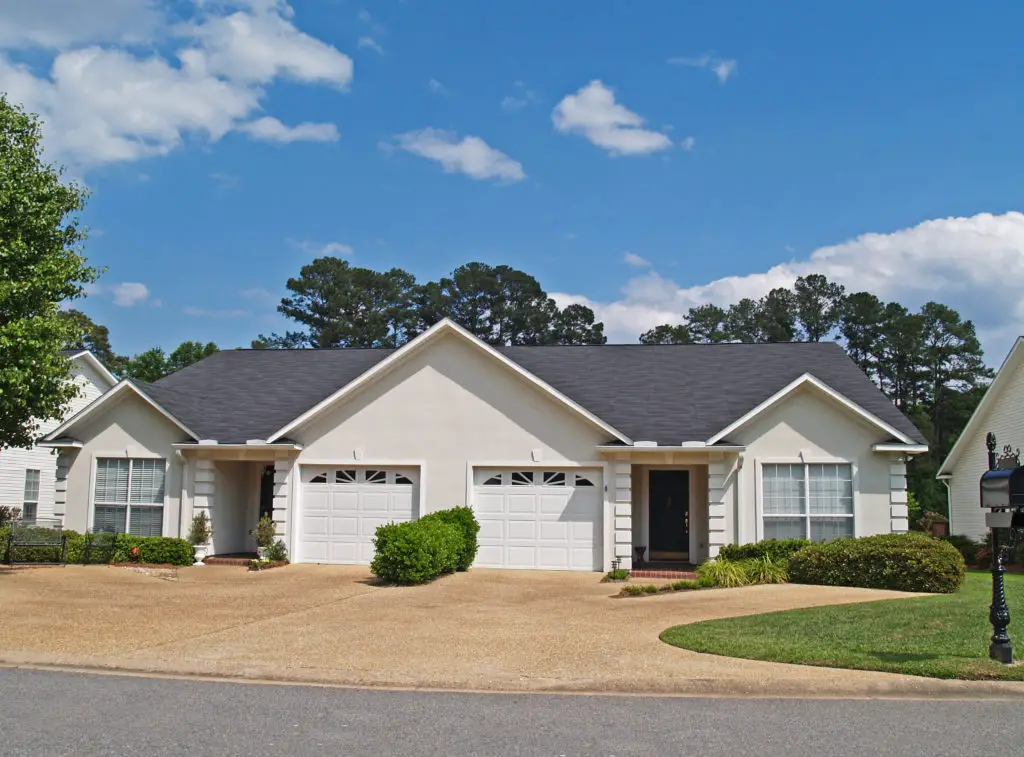
2. Househack a duplex, triplex, or 4-plex
Another fantastic way to get started in real estate investing is to househack. This means that you purchase a multi-family property of some kind, either a duplex, triplex, or 4-plex, and while you live in one part of it, you rent out the other part/s and the tenants will pay the mortgage each month. Even if you don’t get much cash flow, your tenants will be paying the mortgage every month so you are essentially living for free. And at the end of 20-30 years, you’ll own the asset in full and then collect the rent each month as cash flow mortgage-free! You could also do this with a single family house and have a roommate.
Example: Purchase a duplex for $200,000. The mortgage and expenses are $1500/mo. You charge the tenants on one side $1500/mo. You live for free. There is $0 in cash flow on this deal (no monthly profit), but you are living for free, you own an $200,000 asset that will likely appreciate over time, and over time the tenants on the other side of the duplex will pay down the mortgage for you until you own it in cash (or refinance, but that’s a topic for another time). How exciting!
There are many ways to take this on, but consider house hacking if it’s practical for your current life situation. Not everyone wants to live with their tenants in this close of proximity, but it’s a great option for many people so you should consider it.
Analyzing a househack deal is very similar to analyzing any other property, only you’ll take into consideration that you are one of the people occupying a unit and so the cash flow may be low, zero, or even negative and it could still be a good deal (you live for free or cheap!)
Since I’ve never done a house hack before, I recommend you learn from someone who has! Check out this great article on How to Analyze a House Hack.
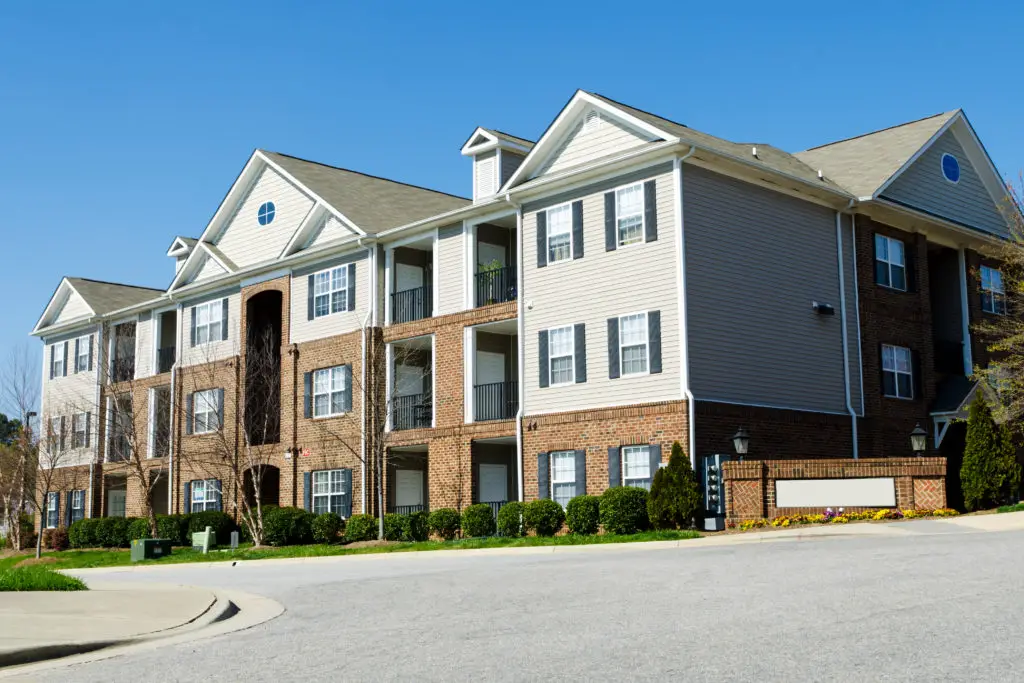
3. Syndicate the purchase of a multifamily asset/apartment community
A more complex (but higher earning) way to invest in real estate is to become a multifamily syndicator, sometimes called lead investor, or deal sponsor.
This means that you purchase properties (often large assets like apartments) with a group of other investors. You as the syndicator find the deal, analyze it, guarantee the loan on the property, raise the downpayment funds, and oversee the property management. There are many ownership structures for this type of investment, but the sponsor or lead investor is usually paid with additional equity in the property plus sometimes a flat fee to be paid at closing. A lead investor’s main goal after closing is to improve the property, improve the management, and provide all the investors who contributed to the deal with regular cash flow/dividends (often around 7-12% annualized, depending on the deal). Improving the property provides additional appreciation which can offer large returns sometimes within just a couple years.
Think of this as a bunch of people pooling their money together until they have enough to purchase a big real estate property as a group, with the syndicator as the leader.
Individuals who want to invest their money into real estate passively will be the ones who pool their money together to purchase the asset. The deal syndicator handles the raising of these funds (putting some of their own money in), formation of the LLC and all legal documentation through an attorney, acquiring the asset, and much more. So basically the syndicator does all the work, and purchases the apartment building using some of their own money plus investor money to make it happen. Passive investors get to reap the rewards of the property’s success.
These deals usually range from $1-100+ million in purchase price, so this type of investing is very hands-on and requires serious analyzing and experience.
Most deals of this nature require a dedicated and experienced real estate syndicator to take the lead, so as a beginner you may not want to dive into becoming a syndicator just yet. However, you should understand this type of real estate investment, even as a newbie, for two reasons. One, because if you find you love real estate investing and want to take it seriously you could begin syndicating fairly early on in your journey and two, it will help you understand becoming a passive investor which is great way to own the benefits of real estate without all the work.
There are two main kinds of lead investors.
1. Owner & Asset Manager only (purchases the property but hires out the management to a 3rd party company)
2. Owner-Property Managers (purchases the property and also does property management in-house)
Some lead investors like to hire out the management of the property to a 3rd party company to allow another reputable company run the property day-to-day, and run the business from a little higher level. Others, however, choose to manage the property in-house. This gives them more control over how the property is run, and it is industry practice to pay the management company a small portion of the proceeds! So, owner-managers can make a little more by managing themselves instead of hiring an outside management company.
A property may have one deal syndicator or multiple deal syndicators that work together for each property.
Note: This is the kind of real estate investing my husband does full-time as an owner-manager, and it’s how we’ve grown our net worth and income so rapidly.
4. Invest passively in real estate with a trusted syndicator
If you read number 3, you know that as a deal syndicator you can put together amazing real estate investments for passive investors. Being a syndicator is a very hands-on way to invest in real estate but the upside can be significant.
However, what if you want to be in on these types of deals (owning apartment real estate) but you don’t have the time or experience to be actively involved in it? Then being one of the passive investors in these deals is perfect for you!
So how much money do you need to be able to invest passively? It depends on the property and the syndicator, but usually $50-$100k minimum investment is required. Also, syndications require investors have a certain amount of net worth or sophistication to ensure they are not taking too much risk.
A syndicator will find a real estate deal that they think is excellent and meets the target profitability numbers they are looking for. Then, with a business plan in hand, they present the deal to investors. If investors like the deal and believe in the business plan, they can put their money into it and become a part-owner of a specific real estate asset.
As a passive investor you can earn money through monthly cash-flow plus appreciation over time on the property.
You can often get much of your original investment back in a few years time if the lead investor decides to refinance and pull equity out, while still maintaining your original ownership, cash-flow, and appreciation on the property for as long as the group still owns it.
If you decide to invest passively in real estate this way, be sure you are investing with an experienced syndicator that you like, know, and trust. This is extremely important!

5. Buy a vacation rental and rent it out for short-term stays
An increasingly popular way to invest in real estate is to purchase a condo or home in a desirable vacation location and rent it out on VRBO, Airbnb, or another similar short-term rental site. This is a different business model than other real estate investments, but it can work.
You’ll need to factor in vacancies, property management, cleaning (unless you want to lease and clean it yourself), and other similar costs to make sure it will provide you the income you desire. The good news is that with the right rental, you can be making monthly cash flow plus appreciation on the property over time, and the renters will be paying off the mortgage for you just like any other real estate investment! After a few decades, you could own the property free and clear and still be generating cash-flow and appreciation.
However, this does take quite a bit of planning and work and trust in a great property management company. You will also need to ensure you are buying in a location that will have consistent renters to provide you the income you desire!
Learn more about the risks and rewards of earning money with an AirBnb before you dive in!
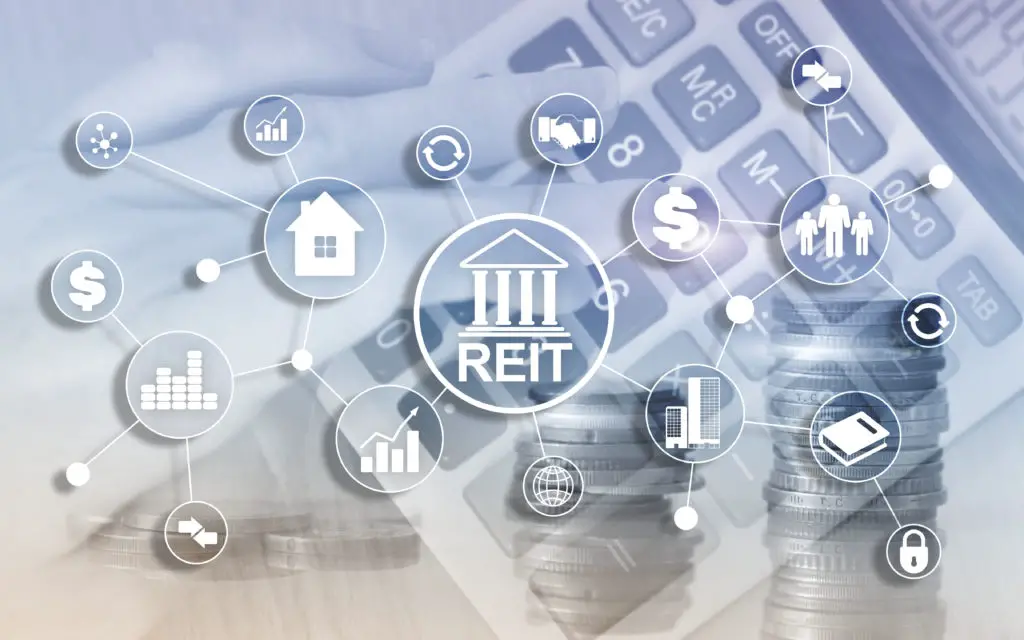
6. Invest passively in REITs
Want to be completely passive and invest in real estate just like you would stocks and bonds? REITs are for you!
REITs, or Real Estate Investment Trusts, are basically buying little pieces of companies that own income-producing real estate through your IRA, 401k, or private brokerage account. You can invest in REITs to help diversify your investment portfolio, although they may not provide much more of a return than standard index and mutual funds. You can find REITs at any major investment account provider such as Fidelity, Vanguard, Charles Schwab, Edward Jones, and so on.
To get started investing in REITs, go to your investment account provider’s website and type REITs into the search bar, or search on Google. Here’s an example of REITs from Fidelity. Start reading, learning, and maybe adding them into your investment mix!
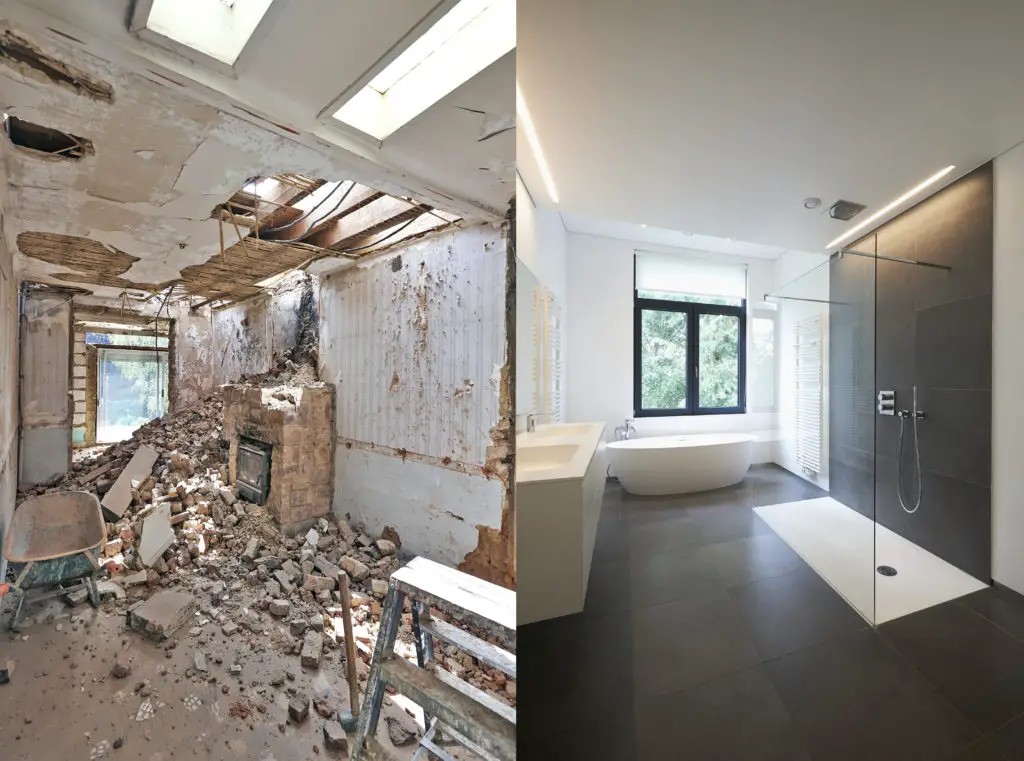
7. Flip houses
One of the OG ways to invest in real estate is to flip houses. The concept is simple: purchase a property that needs some work, renovate it in a way that works with the neighborhood, and then sell it for a profit.
You can make good quick cash with this method!
However, you’ll need some mad renovating skills if you want to DIY any of it, and/or a trusted construction team and contractor to get big projects done. Flipping is usually a pretty hands-on way to invest in real estate, but there are ways to set it up so you do less of the work and hire out more. You will, however, often be giving up some of your potential profits this way!
Further, you must pay taxes on your profits at your standard taxation rate if you’ve owned the property for less than 12 months (which isn’t always the case with buy-and-hold properties). The IRS classifies any investment you own for less than 12 months and then sell for a profit as normal income, so plan ahead for that.
Why We Love Real Estate Investing: Multiple Ways to Make Money in Real Estate Investing!
We personally love investing in real estate because we like owning real, tangible assets, providing housing to our communities, and best of all that it makes you money in several different ways all at the same time! Here are the 3 main ways to make money with real estate:
- Cash flow (Rent – expenses (mortgage, maintenance, management, taxes, improvements, etc.) = cash flow, usually spoken of in terms of monthly cash flow. i.e. $5,000 monthly rent – $3800 monthly expenses = $1200 monthly cash flow)
- Tenants pay off the mortgage over time. Let’s say you purchase a property with a 20% downpayment and mortgage the other 80% on a 20-year loan. Whether your property cash flows every month or not, your tenants will pay off the mortgage over time with their monthly rent payments as you make the mortgage payments. After 20 years, you will own the property free and clear and still be collecting rent every month until the day you sell it!
- Property appreciation. On top of the monthly cash flow and tenants paying off the mortgage over time, in an ideal world your property will regularly be appreciating in value. Housing markets, and rental markets, can certainly go down. This is the risk you take on when you become a real estate investor. But history has shown that over time, real property tends to increase in value. That means if you purchase a property for $100,000 today, in 20 years it could be worth $180,000, an $80,000 gain for you. This is on top of the cash flow you could be earning plus the property getting paid off over time by the tenants!
- BONUS: Tax benefits! Saving money on taxes isn’t making money, per se, but it sure matters. There are significant tax benefits to owning real estate, especially buy-and-hold real estate.
Example of these 3 working together to make some real estate investing magic:
Let’s say you purchase a single-family home in 2020. The cost is $100,000. You put $20,000 down and finance the other $80,000 on a 20-year loan at 3.25%.
You are able to charge $1,100 in rent each month.
Your expenses (mortgage, maintenance, and improvements) are $900/mo. Your cash flow is $200/mo of profit. This may not seem like much at first, but there’s more. Each month, your tenant pays their rent and you make the mortgage payment. After 20 years, you own the entire property in cash- the mortgage has been paid off in full.
Over the last 20 years, it’s also gone up in value about 2% per year, so the house is now worth $150,000. Because the housing market has gone up, so have the rents. You are now able to rent this property out for $1,600/mo.
Yes, you read that right!
For the last 20 years you’ve been collecting $200/mo in cash flow (at least)…
Plus your property has appreciated by $50,000…
Plus the loan is now paid off and you own all $150,000 of it in cash,
Plus you’re still collecting $1,600/mo in rent indefinitely!
All of that just for putting $20,000 down on a property and holding onto it for 20 years…
Now that’s just for one house. Imagine owning 10, 20, or even 100 houses just like this and multiplying all those numbers by 10, 20, or 100.
Are you seeing the potential of owning real estate investments yet?
6 Tips to Get Started on Your First Real Estate Investment Property
1. Start saving money for your first property now
Do this by putting aside some money every month, plus stockpiling any big chunks of cash you get from work bonuses, tax refunds, etc. Start now and in a few months or years you will have enough to get started when an opportunity arises! Around $20-70k is usually enough for your first property.
2. Work on improving your credit score
Having a good credit score (definitely 700+, but the higher the better . . . 750-800 would be ideal) will help you qualify for the best financing terms. Getting quality financing with low interest rates is a huge part of profitable real estate investments! Work on your score now so that you’re ready.
3. Start networking with others in the Real Estate Investing community
Search Instagram for #reicommunity, attend a real estate investing conference, consult with my husband Derek (an experienced investor in South Texas), talk with friends, join the ChooseFI Real Estate Facebook Group or the BiggerPockets Fans Facebook Group, search for others on LinkedIn, and so on!
4. Find a Real Estate Investing mentor
You can find a mentor through networking. Some great networking methods mentioned above!
5. Get educated with books and podcasts
Some of my favorite resources are the Bigger Pockets Podcast, Rich Dad, Poor Dad book by Robert Kiyosaki, the ChooseFI Real Estate Facebook Group and the BiggerPockets Fans Facebook Group. There is also a large community of real estate investors on Instagram you can begin to learn from.
6. Take a course
I don’t have a fancy course to sell you or suggest to you, but I’m sure there are some amazing ones out there you can find if you look.
Risks of Real Estate Investing
Any time you invest, you are taking risk. Let’s talk about some of the risks associated with real estate investing. Even though the upside potential is fantastic, this type of investing doesn’t come without risks and potential problems that you need to be aware of and consider.
- Unable to rent out property consistently (too much vacancy)
- Bad tenants that destroy the property with smoke, pets, or physical damage
- Bad tenants that don’t pay rent (rent delinquency)
- Rental market slowing or going down
- Property management issues
Note that many potential risks you initially think about (flood, fire, tornadoes, etc.) are usually covered by insurance and you must carry insurance on your rental properties. Flood insurance is sometimes optional depending on location.
But yes, there are very real risks with owning real estate.
Many potential real estate investors don’t want to take on landlording because it’s a big job with a lot of headaches. That’s why passive real estate investing is such a great option! However, the upside potential is often higher with more hands-on real estate investments, so there’s a tradeoff there.
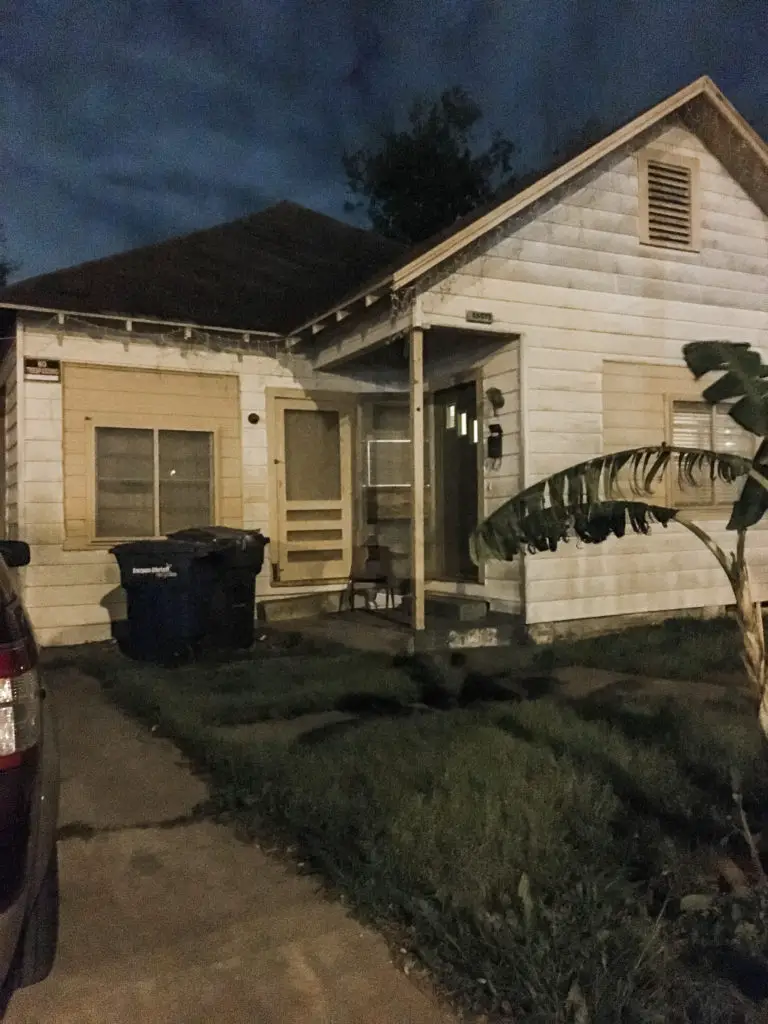
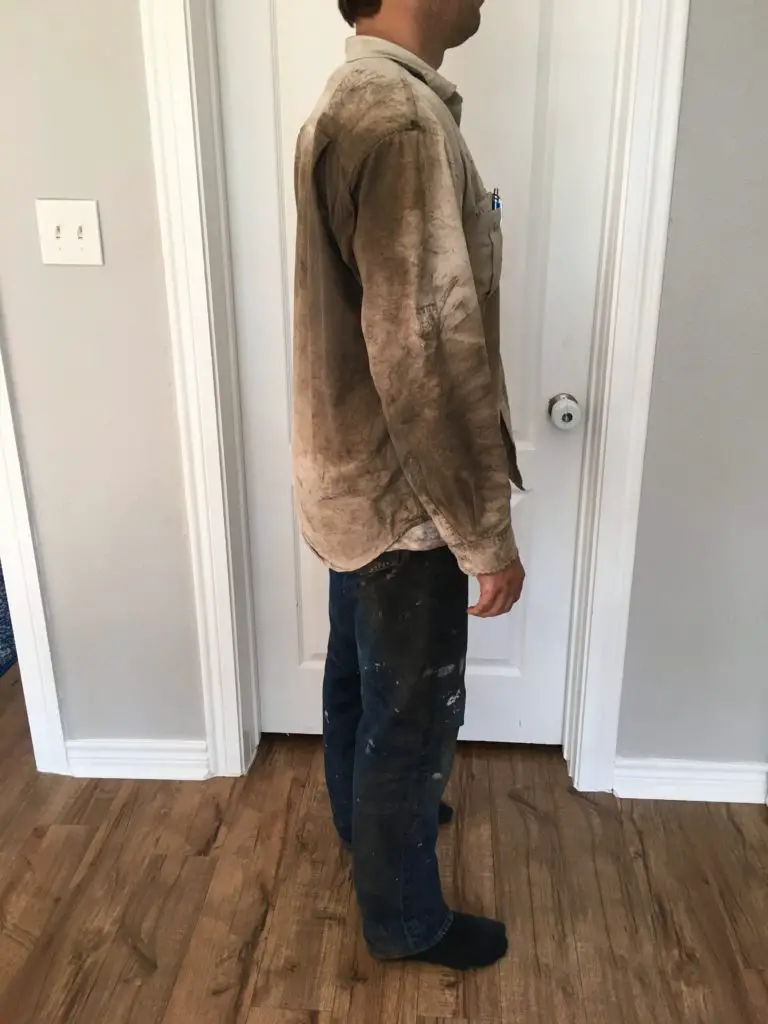
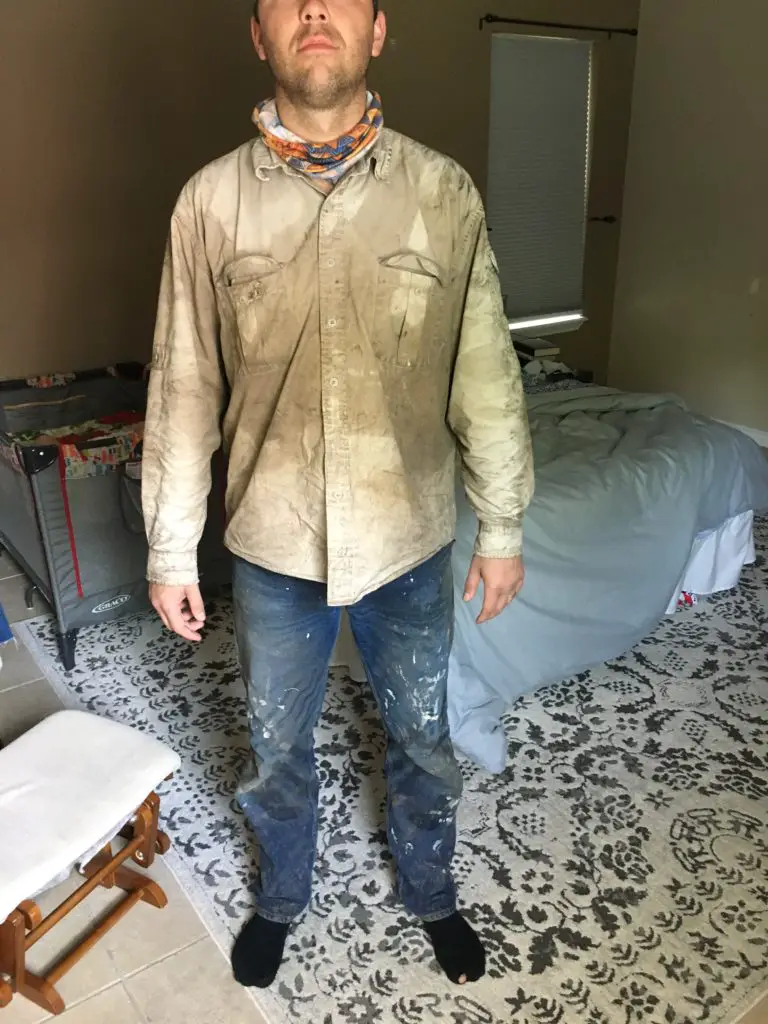
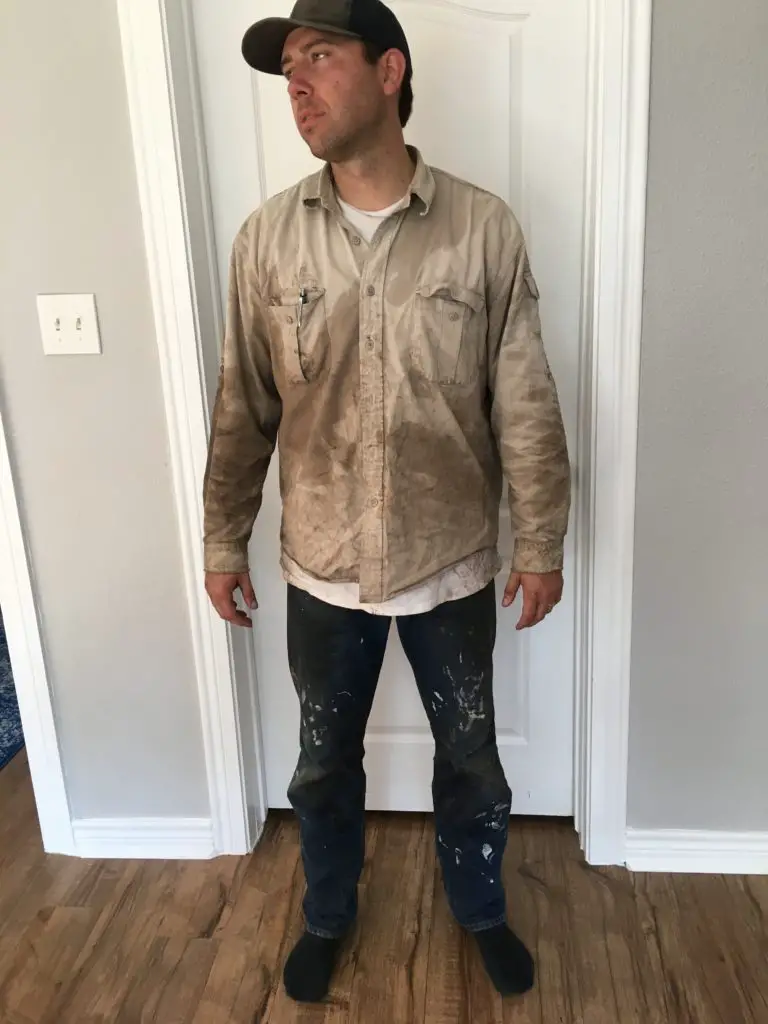
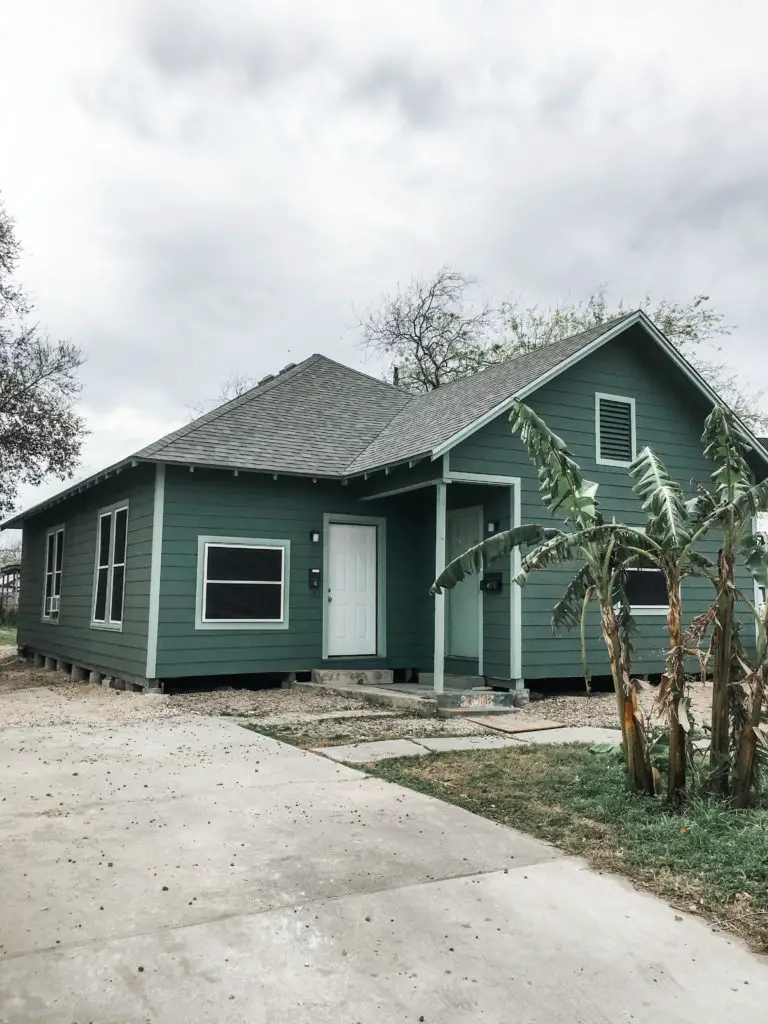
Our Story: How We Got Started on Real Estate Investing and Now Do It Full-Time
I don’t want to bore you with our personal story, but I do feel like real world examples are so helpful in seeing how this can all play out in real life. It may also add a little credibility to this article, so here’s what we’ve done:
- My husband Derek started learning about and reading about real estate investing through the Bigger Pockets podcast, friends/relatives in our social circle, and a Rod Khlief conference.
- In 2019 we made our first investment real estate transaction by purchasing a super rundown duplex in our town for $27,000. We purchased it all-cash with a partner, both of us being 50/50 partners. We renovated it with nearly $40,000 in repairs and upgrades (all-cash, doing much of it ourselves) and started renting it out to tenants. We did this over the course of a year using a new job bonus and extra money scraped together through budgeting to pay for everything.
- Not long after we started, we met a new friend through our social circle who happened to be a young but fairly experienced multifamily real estate syndicator and investor. We became quick friends and started learning from him and working with him.
- We decided to move up to multifamily real estate and purchased a 16-unit complex with a group of other investors.
- Next, we purchased a 40-unit apartment community with a group of experienced syndicators and investors.
- Soon after this purchase, and within in 2 years of purchasing our duplex, we joined in full partnership with our friend and mentor and now purchase large apartment community assets and manage them as a team. We have over 30 employees.
- We’ve multiplied our net worth by 18 times and were able to grow our monthly income to a place where it could replace my husband’s full-time engineering income, and he quit in 2021. He is now a full-time real estate syndicator and investor.
- How do we come up with the money to buy these properties??? We still live a fairly simple lifestyle and let our money pile up every month until we have a good $25-50k chunk to put toward the next property purchase. With multiple streams of income, we are able to do this. Plus, we sometimes pull money out of properties we already own through refinancing to get more cash. We use our own money plus the funds raised from passive investors to buy each new property, and gain instant equity for being a lead investor and taking on the work and risk.
- This is a lot of work and time!! It has not been easy, or come easy, but we’re good at it. Derek does all the investing, and I (Merilee) am in charge of the family finances and budget to make sure we have enough money to invest when an opportunity arises. At this time we invest around 40% of our income each year.
- We plan to continue to grow and acquire new properties and manage them. We are just getting started!
Conclusion
I hope this article has sparked your interest in real estate investing and given you some ideas to start researching further and working on! In addition, I hope the tips for getting started on real estate investing have given you some practical things you can be doing now to get ready to invest so that in a few months or years you are ready to jump in yourself!
If you’ve made it this far in reading the whole article, there’s a good chance real estate investing is interesting to you and a good fit for your risk tolerance.
Real estate investing is a great wealth builder, and you can have a piece of the pie if you’re willing to learn and get started! Remember, we all started by knowing nothing and grow and learn as we go.
This article is for educational purposes only. Not investing advice. Invest at your own risk. When you invest in real estate, your money is at risk and you are willingly taking on that risk.
Did you enjoy this post? Share it to Pinterest or send it to a friend!

